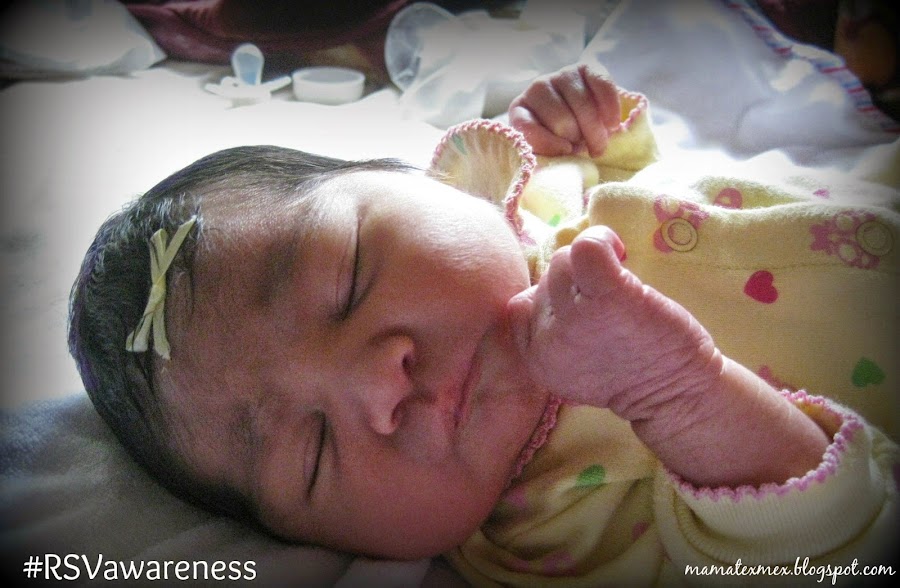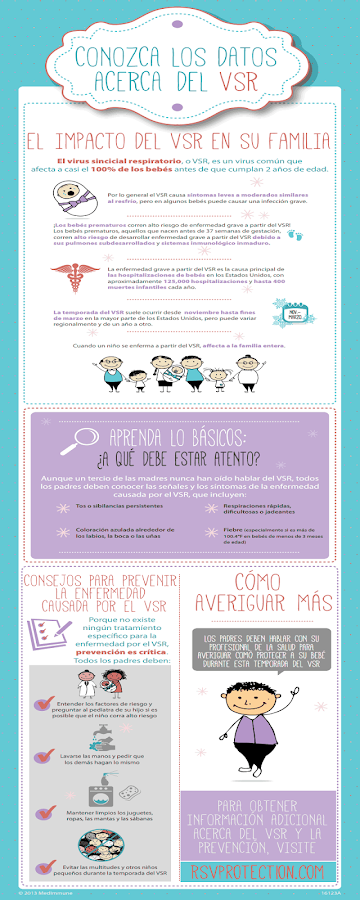Cuando nos convertimos en mamas por primera vez ese bebe pequeñito se convierte en nuestro mundo, por cual hacemos todo lo posible por mantenerlo sano y feliz, aunque aveces no podamos cerrar un ojo por miedo a que despierte. Pero que pasa cuando nuestro bebe nace prematuro? El processo de regresar a casa en 2-3 dias es aun mas dificil tanto para nosotros como padres y para nuestros bebes, ya que tienen pulmones inmaduros y un sistema inmune muy fragil y necesitaran cuidados especiales, muchas veces quedandose en el hospital por semanas. Y no se diga si nacio entre los meses de invierno ya que es cuando hay mas enfermedades estacionales contagiosas y tenemos que tener mucho cuidado que no se nos enferme nuestro terroncito de azucar.
Y aunque mi hija no nació prematura, mi hermano menor si y por lo que me cuenta mi mama fue un momento muy doloroso é dificil el tener que visitarlo todos los dias y verlo dentro de una incubadora, sin poder llevarlo a casa. Es increible que cada año nacen 13 mil bebes prematuros en el mundo. Como padres debemos conocer los riesgos que implica un nacimiento prematuro- la causa principal de muertes neonatal. ¿Sabes que es la prematuridad? ¿Sabias que el 75% de padres no conocen la definición de un parto prematuro? (nacido antes de 37 semanas de gestacion), lo peor es que durante el embarazo la mayoria de las futuras mamis no consultan con su médico acerca de los riesgos que implica tener un parto prematuro y posibles consequencias para el bebe. Por lo cual es muy importante hacerle saber a nuestro médico cual sea la duda o pregunta que tengamos acerca del embarazo.
Un bebe que nace prematuro aun no ha recibido todos los anticuerpos que necesita durante su gestacion para luchar contra las infecciones, siendo vulnerables ante una variedad de enfermedades y infecciones especialmente durante los meses de invierno. Quiero aprovechar para informarles que este 17 de Noviembre es el Dia Mundial de Nacimiento Prematuro, y que mejor momento para asesorarnos acerca de una enfermedad que afecta a todos los recien nacidos pero que es mas grave si lo contraten bebes preemies (prematuros) El virus sincitial respiratorio (VSR) o (RSV- Respiratory Syncytial Virus) por sus siglas en ingles.
¿Que es el Virus Sincitial Respiratorio (VSR)?
El VSR es un virus estacional común, que la mayoria de los niños contrae antes de los 2 añitos. En bebés sanos, nacidos a término, presenta los síntomas típicos del resfrío leves a moderados.
Cada año se producen epidemias de VSR, en general de Noviembre a Marzo, aunque esto puede variar año a año en distinatas geografias.
El VSR es la principal cause de internacion de bebés durante su primer año de vida en los Estados Unidos, donde se registran aproximadamente 125,000 internaciones y hasta 200 fallecimientos de bebes por año.
A pesar de ser una enfermedad tan común, muchos padres no la conocen. De hecho, un tercio de las madres nunca la han escuchado.¿Porqué los bebés prematuros tienen mayor riesgo de contraecontraer el VSR?
Todos los bebés son susceptibles a contraer esta enfermedad, pero los bebés prematuros tienen mayor riesgo de desarrollar un caso grave de VSR. De hecho, los bebés prematuros tienen el doble de posibilidades que los bebés nacidos a término de presentar síntomas de VSR que requieren internacion.
¿Cuales son los síntomas de los casos graves de VSR?
Tos persistente ó silbido en el pecho.
Color azulado alrededor de los labios ó en las uñas.
Dificultad para respirar ó respiración rápida ó agitada.
Fiebre (en especial si supera los 100.4°F (38°C) [rectal] en bebés menores de 3 meses)¿Como puedo proteger a mi bebé del VSR?
El VSR es sumamente contagioso y se contrae con facilidad por el tacto, estornudos o la tos. Además el virus puede sobrevivir en la piel y sobre superficies durante horas. Una vez contraída la enfermedad, no existe tratamiento. Por ello, la prevención es fundamental! Hay que adoptar las siguientes medidas para minimizar la diseminación del VSR:
Lavar sus manos con frecuencia y recordar a las visitas de hacer lo mismo antes de tocar al bebé.
Mantener limpios los jugetes, la indumentaria y la ropa de cama.
Evitar las multitudes y el contacto con otros niños pequeños durante la temporada de VSR.
Nunca dejar que alguien fume cerca del bebé.
Mantenerse alejado de personas enfermas o que recién se recuperan de una enfermedad.Si tienes alguna pregunta o duda, consulta al pediatra de tu bebé para verificar si presenta algun riesgo elevado de contraer el VSR y cuales serian las precauciones recomendables por su doctor. Si deseas obtener mas información acerca del VSR, su prevención y experiencias de familias que han pasado por esto visita www.RSVprotection.com. Sigue y comprate este tema importante en las redes sociales usando el hashtag #RSVawareness #PreemieProtection.
Y recuerda! Este 17 de Noviembre es el Dia Mundial de Nacimiento Prematuro, informales a las mamis encinta para asi mantener a nuestros bebes felices y saludables!
Saludos!
Antes de leer esto, sabias del virus sincitial respiratorio (VSR)?
(Comenta Abajo)
English
This is part of a sponsored collaboration with MedImmune and Latina Mom Bloggers. However, all opinions expressed are my own.
When we become first time moms that tiny baby becomes our world, which we do everything possible to keep them healthy and happy even if it means not sleeping for days. But what happens when our baby is born prematurely? The process of returning home within 2-3 days is even more difficult for both us as parents and for our babies because they have not fully developed and may have immature lungs and a very fragile immune system which they need special care for often staying in the hospital for weeks, and not to mention if they were born during the winter when seasonal contagious diseases are in full effect.
And although my daughter wasn"t born premature, my younger brother was, and from my mother has told me, it was a difficult moment- having to visit every day and only see him in an incubator and not being able take him home. It"s amazing that every year 13 million babies are born premature worldwide. As parents we should know the risks of a preterm birth, a leading cause of neonatal deaths. Do you know what premature is? Did you know that 75% of parents do not know the definition of prematurity (born before 37 weeks of gestation), and during pregnancy most of the expecting moms do not consult with their doctor about the risks of a preterm birth and possible consequences for the baby. This is why it"s very important to ask or write down all the questions you have about your pregnancy.
A premature baby has not yet developed all antibodies needed to fight infections and illnesses, especially during the winter. I want to take this opportunity to inform you that this November 17th is World Prematurity Day, what better time to learn about a disease that affects all newborns but is dangerous if presented in preemies, respiratory syncytial virus (RSV).
What is Respiratory Syncytial Virus (RSV)?
RSV is a common seasonal virus, contracted by nearly all children by the age of 2, and typically causes mild to moderate cold-like symptoms in healthy, full-term babies.
RSV occurs in epidemics each year, typically from November through March, though it can vary by geography and year-to-year.
RSV diseade is the leading cause of hosputalization for babies during their first year of life in the Unite States, with approximately. 125,000 hospitalizations and up to 200 infant deaths each year.
Despite beigh so common, many parents aren"t aware of RSV; in fact, one-third of mothers have never heard of the virus.
Why are Preemies at Higher Risk for RSV?
While every baby is at risk of contracting RSV, babies born prematurely are at increased risk for developing severe RSV. In fact, preterm infants are twice as likely as full-term infants to be admitted to the hospital for RSV-related symptoms.
What are the Symptoms of Severe RSV?
If your child shows any if these symptoms, contact their pediatrician immediately!
Persistent cough or wheezing
Bluish color around the mouth or fingernails
Rapid, difficult, or gasping breaths
Fever (especially if it"s over 100°F [rectal] in infants under 3 months of age)
How Can I Protect My Baby from RSV?
RSV is very contagious and can be spread easily through touching, sneezing and coughing. Additionally, the virus can live on the skin and surfaces for hours. There is no treatment for RSV disease once contracted, so prevention is critical! To help minimize the spread of RSV, parents should :
Wash their hands and ask others to do the same
Keep toys, clothes, blankets and sheets clean
Avoid crowds and other young children during RSV season
Never let anyone smoke around your baby
Steet cleat of people who are sick or who have recently been sick
If you have any questions, consult your baby"s doctor to verify if there is a high risk for RSV and what would be the recommended precautions. If you want more information about RSV, it"s prevention and other families" experiences visit www.RSVprotection.com. Follow and share this important topic on any social network using the hashtag #RSVawareness #PreemieProtection.
Reminder! November 17th is World Prematurity Day - Inform expecting moms about RSV to keep babies happy and healthy!Before reading this, did you know about Respritory Syncitial Virus (RSV)?




